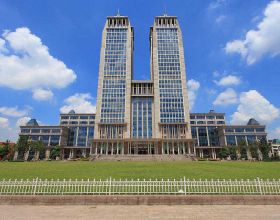【文獻解讀】
大量證據表明,壓力通常會加速或加重炎症症狀,尤其是多發性硬化症(MS),一種以中樞神經系統炎症為特徵的脫髓鞘自身免疫性疾病。然而,壓力如何影響多發性硬化症的機制還不是很清楚。2013年8月,美國馬薩諸塞州波士頓市塔夫茨大學回顧了1995年以來在PubMed上發表的文章,總結了壓力對大腦炎症與多發性硬化的影響。
研究人員發現,壓力下分泌的神經肽,如促腎上腺皮質激素釋放激素和神經降壓素都會啟用小膠質細胞和肥大細胞釋放炎症分子。這導致了自身免疫細胞的成熟和啟用,血腦屏障的破壞,所以T細胞進入中樞神經系統,從而促進腦部炎症,促進MS的病理。
研究人員還了解到小膠質細胞和肥大細胞被認為是MS的下一個治療靶點,然而,目前還沒有臨床可用的抑制劑。黃酮類化合物能抑制小膠質細胞TNF-α和IL-6的表達和釋放,抑制細胞活化和細胞因子的釋放具有抗氧化和抗炎作用。
壓力不光會引起大腦發炎,慢性壓力還可以降低腦容量。也就是說,如果一直處於緊張狀態,大腦可能會縮小,而這會導致認知受損,並導致情緒障礙,阻礙記憶與學習。但是壓力是無可避免的,我們能做到的不光是減輕壓力,還要消除大腦炎症。現在已有多種天然的消炎成分如留蘭香、槲皮素、木犀草素和芹菜素等,這對用腦過度、壓力過大的青少年來講無疑是個福音。
【關鍵詞】血腦屏障、促腎上腺皮質激素、神經降壓素、炎症、小膠質細胞、肥大細胞、
【原文標題】Effect of stress on brain inflammation and multiple sclerosis
【標題翻譯】應激對腦部炎症和多發性硬化的影響
【文獻作者】Anna Karagkouni、Michail Alevizos、Theoharis C. Theoharides
【釋出雜誌】Autoimmunity Reviews
【釋出時間】2013年8月
【影響因子】9.754
【原文連結】https://doi.org/10.1016/j.autrev.2013.02.006
【文獻節選】
Substantial evidence indicates that stress can precipitate or worsen symptoms of inflammation in general and more specifically in multiple sclerosis (MS), a demyelinating, autoimmune disease characterized by inflammation of the central nervous system (CNS). However, the mechanism of how stress affects MS is not well understood. We reviewed publications in PubMed since 1995 and propose that neuropeptides secreted under stress, such as corticotropin releasing hormone (CRH) and neurotensin (NT), activate microglia and mast cells to release inflammatory molecules. These lead to maturation and activation of T17 autoimmune cells, disruption of the blood–brain barrier (BBB) and T cell entry into the CNS, thus promoting brain inflammation and contributing to MS pathology. Reduction of stress and inhibition of these processes by selectflavonoids could provide novel therapeutic approaches.














